| Author |
 Topic Search Topic Search  Topic Options Topic Options
|
Codger 
Orange Level


Joined: 23 Dec 2020
Location: Utopia
Points: 2041
|
 Post Options Post Options
 Thanks(0) Thanks(0)
 Quote Quote  Reply Reply
 Topic: Any experience with a "Sheep Foot" roller? Topic: Any experience with a "Sheep Foot" roller?
Posted: 21 Jan 2022 at 9:06am |
Going to borrow one of these to compact a hillside that has refused to "knit" together after the pond was dug with my 11B. Never have pulled one of these in the past myself. I'm planning to strip the topsoil with the dozer which is sliding down the bank towards the water, compact the subsoil, then respread the topsoil compacting as I go. A final layer of mulched and blended topsoil will then be spread and seeded with a "Harley Rake" and seeder borrowed from another friend whom is a landscaper.
Any tips available concerning pulling this thing on an incline? It's not that steep I'm worried about the dozer sliding sideways or anything like that.
Thanks,
|
 |
|
Sponsored Links
|
|
 |
jaybmiller 
Orange Level Access

Joined: 12 Sep 2009
Location: Greensville,Ont
Points: 22487
|
 Post Options Post Options
 Thanks(0) Thanks(0)
 Quote Quote  Reply Reply
 Posted: 21 Jan 2022 at 9:11am Posted: 21 Jan 2022 at 9:11am |
ALWAYS go up an down hills, NEVER ever sideways if the slope is steep enough to get topsoil to the pond, it may be steep enough to hurt you. Please just be real careful !!
|
|
3 D-14s,A-C forklift, B-112
Kubota BX23S lil' TOOT( The Other Orange Tractor)
Never burn your bridges, unless you can walk on water
|
 |
Codger 
Orange Level


Joined: 23 Dec 2020
Location: Utopia
Points: 2041
|
 Post Options Post Options
 Thanks(0) Thanks(0)
 Quote Quote  Reply Reply
 Posted: 21 Jan 2022 at 9:21am Posted: 21 Jan 2022 at 9:21am |
Thank you. We are going to drain the pond with trash pumps over the berm created when it was built. There is a large amount of clay in the mix and was no compaction when everything was done. With the rains of late in the summer and now the freeze and thaw cycles, some of the topsoil is sliding off.
There will be enough room to go up and down the berm rather than sideways and then turn around up top. Never have operated a dozer sideways on an incline and am totally unfamiliar with the equipment to be used, so really appreciate the advice.
|
 |
steve(ill) 
Orange Level Access

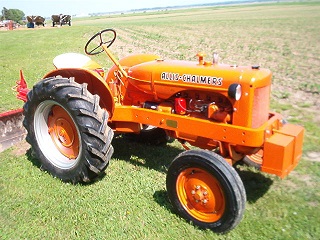
Joined: 11 Sep 2009
Location: illinois
Points: 81335
|
 Post Options Post Options
 Thanks(0) Thanks(0)
 Quote Quote  Reply Reply
 Posted: 21 Jan 2022 at 9:21am Posted: 21 Jan 2022 at 9:21am |
|
We use to pull one with a dozer to compact "refill" areas... The big think is to laydown a few inches of dirt, compact, laydown a few more inches , compact, etc .... You cant compact 2 ft deep dirt.. a few INCHES at a time.
|
|
Like them all, but love the "B"s.
|
 |
Codger 
Orange Level


Joined: 23 Dec 2020
Location: Utopia
Points: 2041
|
 Post Options Post Options
 Thanks(0) Thanks(0)
 Quote Quote  Reply Reply
 Posted: 21 Jan 2022 at 9:27am Posted: 21 Jan 2022 at 9:27am |
Thanks, that is my thoughts also. The roller is about nine tons and the feet are about six inches long and I was thinking to go no deeper than about six inches per lift and run the roller over the area. It does not vibrate or anything like that but it sure is heavy. The owner usually pulls it with his 9670, or 8070 and they both do a good job.
No experience so open to suggestions.
|
 |
Ray54 
Orange Level Access

Joined: 22 Nov 2009
Location: Paso Robles, Ca
Points: 4547
|
 Post Options Post Options
 Thanks(0) Thanks(0)
 Quote Quote  Reply Reply
 Posted: 21 Jan 2022 at 11:14am Posted: 21 Jan 2022 at 11:14am |
You would have to work at tipping a HD 11 dozer over. One to one slope is nothing. Even 2 to 1 slope is workable with care.
But it would seem to me you need deep rooted plants growing on the hillside. Some soil types are just not suited to be a sidehill lawn. Just radium thoughts as without pictures I don't have the complete picture.
For real compaction generally 2 to 4 inch of fill would be more typical for each lift of fill. And abdicate amount of moisture in the soil as well. But that may not be anything to worry about in your part of the country, just here in the west where we can be months without rain.
|
 |
Codger 
Orange Level


Joined: 23 Dec 2020
Location: Utopia
Points: 2041
|
 Post Options Post Options
 Thanks(0) Thanks(0)
 Quote Quote  Reply Reply
 Posted: 21 Jan 2022 at 11:59am Posted: 21 Jan 2022 at 11:59am |
Thanks Ray. No experience with the tractor at all other than driving it across the flat gravel driveway. I have a brand new laser receiver for the blade, (Spectra LR50W) and remote display for the ROPS, (RD20). A contractor friend gave me a Johnson rotary laser I cleaned up and it works in bright sunlight from several hundred feet. Hopefully these will get me to grade or slope desired.
The water level is about 10' down from the top of the berm which has a driveway routed upon it. This is basically all fill from the dozer pushing the pond removal up the side forming the berm. This fill is now starting to slide back down towards the water. It's not very steep, but is a lot of clay and they didn't do any compacting at all other than back and forth with the dozer. It was then grass seeded and called good. The top of the berm is not fresh fill, the pond spoils were pushed up to it.
Off subject but I worked a project at the Paso Robles long range radar site doing upgrades to equipment a few years ago before retiring. Nice folks up there.
|
 |
PaulB 
Orange Level

Joined: 12 Sep 2009
Location: Rocky Ridge Md
Points: 4753
|
 Post Options Post Options
 Thanks(0) Thanks(0)
 Quote Quote  Reply Reply
 Posted: 21 Jan 2022 at 1:48pm Posted: 21 Jan 2022 at 1:48pm |
Pulling a sheepsfoot roller on a side hill with a crawler doesn't seem like a problem to me. As mentioned when trying to compact soil, it needs to be done in layers, it can't be done too thick or the desired results won't be acquired. Before I retired, I hauled a lot of cement to be mixed in with soil for road bases. Your soil type may not be conducive to packing as you are asking it to and my need to be augmented with something. The process was; the powered cement was spread with a spreader similar to a dry lime spreader, at whatever rate was determined for the type of soil. The a huge rototiller would mix in in. then it was compacted with a smooth drum roller and left o set undisturbed for at least 48 hours. The cement use did not have to meet any specifications and was usually stuff that failed to meet the specification for concrete. Some places would even use just dry lime.
|
|
If it was fun to pull in LOW gear, I could have a John Deere.
Real pullers don't have speed limits.
If you can't make it GO... make it SHINY
|
 |
Dusty MI 
Orange Level


Joined: 13 Sep 2009
Location: Charlotte, Mi
Points: 5058
|
 Post Options Post Options
 Thanks(0) Thanks(0)
 Quote Quote  Reply Reply
 Posted: 21 Jan 2022 at 3:17pm Posted: 21 Jan 2022 at 3:17pm |
A little different but I have question about ponds and soil. We have a nice pond just behind the house, without any sand, and it is muddy to walk into the water. Can I just add sand to make a beach and cover the mud in the water so it will be nice to walk into the water? Thanks, Dusty
|
|
917 H, '48 G, '65 D-10 series III "Allis Express"
|
 |
AC Mel 
Orange Level Access

Joined: 23 Jan 2010
Location: N.Ca.
Points: 1101
|
 Post Options Post Options
 Thanks(0) Thanks(0)
 Quote Quote  Reply Reply
 Posted: 21 Jan 2022 at 3:36pm Posted: 21 Jan 2022 at 3:36pm |
Ok....Started looking for "experience with a sheepsfoot" pictures that I have....can't find them. But I did find some "experience working on a sheepsfoot" pictures....LOL. We acquired this sheepdfoot many years ago...and knew at the time it would be rebuilt or scrapped. So.....It was really ugly...made all these pads in the shop....and then welded them on
This was done at our "Allis Chalmers Playground" as we refer to it. It is a pond that our father built 60 years ago that had filled with sediment.....needed cleaning.We have pulled it mostly with 1 of our 11B,s...or an HD15 ...or this past summer we had it on an 11EP
i'll keep looking for the "experience sheep foot pictures"
Also wood concur with everything Ray said about this process.
|
 |
Ian Beale 
Orange Level

Joined: 03 Oct 2011
Location: New South Wales
Points: 973
|
 Post Options Post Options
 Thanks(0) Thanks(0)
 Quote Quote  Reply Reply
 Posted: 21 Jan 2022 at 4:19pm Posted: 21 Jan 2022 at 4:19pm |
The only thing I can add is a comment heard way back when
"They'll tell you when the moisture is right. That is when they start rising up"
|
 |
DMiller 
Orange Level Access

Joined: 14 Sep 2009
Location: Hermann, Mo
Points: 31119
|
 Post Options Post Options
 Thanks(0) Thanks(0)
 Quote Quote  Reply Reply
 Posted: 21 Jan 2022 at 4:41pm Posted: 21 Jan 2022 at 4:41pm |
If the soil is sloughing off the face of the dam you need to drain and reconstruct the ENTIRE dam/impounding levee. To slough the soil has to be getting and retaining moisture, LOTS of moisture, much as LEAKING.
Need to start at the Base, 'lifts' of no more than 4-6" of material, sheepsfoot that until solid then add another 'lift', find the Soft Spot where the moisture is wicking thru, may find a pocket of soil with too much organic material in it which will leach.
|
 |
Codger 
Orange Level


Joined: 23 Dec 2020
Location: Utopia
Points: 2041
|
 Post Options Post Options
 Thanks(0) Thanks(0)
 Quote Quote  Reply Reply
 Posted: 21 Jan 2022 at 9:03pm Posted: 21 Jan 2022 at 9:03pm |
I think there is a bit of confusion with the problem at hand. Please allow me to attempt to clarify. The pond is not leaking and the water level is quite a bit lower than the berm which has the sliding topsoil. Let's have a look at this overhead photo which is a bit aged of the area:
For orientation, the top of the photo is north:
The red line in the photo is now a gravel driveway atop the "berm" I've referred to. The yellow box has a retaining wall built in with a boat dock and diving platform over the top protruding into, and out over the pond. This wall was pushing out and warranted further investigation. I found the soil sliding away when walking up from looking at the wall. There is about a 10' drop from the driveway to the water level and the slope is about 20' in width. Prior to the dirt being pushed out of what is now the pond, the area was relatively flat but this pond area was a depression. The dirt was pushed up onto the south side and spread over about 100' in length up to what is now the gravel driveway edge. I'm told there is less than six inches of "fill" spread over the area but it looks greater than that to me. Again there was no compaction attempted except back and forth with the dozer.
I'm "green" to anything like this as have virtually no experience. Not going to kid anybody about that. Don't want to make mistakes and certainly wiling to solicit any help to attempt a lasting repair. The owner has a large mini excavator and is going to dig out the back of the retaining wall as there was no drainage incorporated there. There was a footing poured and the interlocking landscape blocks built up onto that. I would like to pour another good footing, and set a few two ton interlocking concrete blocks tied into the footings with rebar to ensure the wall will hold back any pressure. These will have drainage tile incorporated to relieve any ground water pressure however slight.
|
 |
Ray54 
Orange Level Access

Joined: 22 Nov 2009
Location: Paso Robles, Ca
Points: 4547
|
 Post Options Post Options
 Thanks(0) Thanks(0)
 Quote Quote  Reply Reply
 Posted: 22 Jan 2022 at 12:27pm Posted: 22 Jan 2022 at 12:27pm |
I will guess your radar work was on the Camp Roberts military base, at the big dome that can be seen from miles away. If the military did not own that area most of it would have been cleared for wheat and barley growing in the 50's. Latter being converted to wine grape vineyards like a very high percentage of the county has been. Many acres of steeper than 2 to 1 slopes are farmed here.
I see the photo is farm service, was the pond engineered by USDA Soil Conservation Service? Because it appears there is no overflow. I would trust if built to USDA plan that it is safe and they have responsibility if it washes away. But other wise the no overflow would be of great concern to me.
But if the soil will compact it looks like your plan to stop soil movement has a good chance of working.
|
 |
Ray54 
Orange Level Access

Joined: 22 Nov 2009
Location: Paso Robles, Ca
Points: 4547
|
 Post Options Post Options
 Thanks(0) Thanks(0)
 Quote Quote  Reply Reply
 Posted: 22 Jan 2022 at 12:36pm Posted: 22 Jan 2022 at 12:36pm |
 Dusty MI wrote: Dusty MI wrote:
A little different but I have question about ponds and soil. We have a nice pond just behind the house, without any sand, and it is muddy to walk into the water. Can I just add sand to make a beach and cover the mud in the water so it will be nice to walk into the water? Thanks, Dusty |
I would say again it depends on the type of soil to how well just adding sand will work. Could take less tons of imported material to start by putting bigger rock down and covering that with sand. But with big bucks anything is dowable. But a problem for we the common folk.
|
 |
Codger 
Orange Level


Joined: 23 Dec 2020
Location: Utopia
Points: 2041
|
 Post Options Post Options
 Thanks(0) Thanks(0)
 Quote Quote  Reply Reply
 Posted: 22 Jan 2022 at 2:12pm Posted: 22 Jan 2022 at 2:12pm |
At the north end of the pond up into the point where the trees hide it is a culvert that runs under the driveway and spills into the field ditch on the other side carrying runoff. I only thought of this as level control and don't know if anybody else was involved or not. I'll certainly ask. The photo was a screen grab by me from google maps.
The wall, dock and diving platform, and a few other things have been installed over five years so the photo is quite old, but I couldn't find anything newer.
Thanks for the assist. I'll grab photos as the work is performed. I've never ran the dozer so really looking forward to it.
|
 |
Codger 
Orange Level


Joined: 23 Dec 2020
Location: Utopia
Points: 2041
|
 Post Options Post Options
 Thanks(0) Thanks(0)
 Quote Quote  Reply Reply
 Posted: 22 Jan 2022 at 2:50pm Posted: 22 Jan 2022 at 2:50pm |
I don't recall it being on a military base but it's been a long time ago. I was installing an ATCBI-6 secondary radar set and optimization of the same. Did this work all over the country so have forgotten a few particulars of each site.
Here is a link. I was an FAA employee for 34 years and specialized in radar maintenance, installs and tearouts, upgrades, and site planning. Really good career I enjoyed for the most part.
Edited by Codger - 23 Jan 2022 at 7:50am
|
 |
Codger 
Orange Level


Joined: 23 Dec 2020
Location: Utopia
Points: 2041
|
 Post Options Post Options
 Thanks(0) Thanks(0)
 Quote Quote  Reply Reply
 Posted: 22 Jan 2022 at 3:19pm Posted: 22 Jan 2022 at 3:19pm |
Really nice photos Mel. All that welding reminds me of when I was starting out in the mines in the late 1970's with my Hobart engine drive. Lot's of hard facing, buildup, repairing, busting tracks apart to install new parts, etc.
Looks a lot like someone is quite familiar with Lincoln NR-211 wire from the photos. What filler do you use for hard facing? I always liked Stoody "31", or "35" depending upon position for weldup but that's a lot of years in the past. I don't have any hardfacing on my tractor but haven't gotten a close enough look to see if any is needed.
Sure missed that type work for a lot of years too.
|
 |
Ray54 
Orange Level Access

Joined: 22 Nov 2009
Location: Paso Robles, Ca
Points: 4547
|
 Post Options Post Options
 Thanks(0) Thanks(0)
 Quote Quote  Reply Reply
 Posted: 24 Jan 2022 at 12:23pm Posted: 24 Jan 2022 at 12:23pm |
|
Ok you where at the Paso Robles city airport, in the flatlands for this area.
|
 |
Codger 
Orange Level


Joined: 23 Dec 2020
Location: Utopia
Points: 2041
|
 Post Options Post Options
 Thanks(0) Thanks(0)
 Quote Quote  Reply Reply
 Posted: 25 Jan 2022 at 5:13am Posted: 25 Jan 2022 at 5:13am |
That sounds correct from memory. We usually worked in the overnight hours citing air traffic patterns to minimize impact to air traffic control. I'm sure it's much worse now getting equipment scheduled out of service to work with it.
The aftermath events of 9/11 changed a lot of the dynamics of the job but was still a good career.
|
 |
Codger 
Orange Level


Joined: 23 Dec 2020
Location: Utopia
Points: 2041
|
 Post Options Post Options
 Thanks(0) Thanks(0)
 Quote Quote  Reply Reply
 Posted: 25 Jan 2022 at 5:28am Posted: 25 Jan 2022 at 5:28am |
I've been scoping around on the internet during the early morning hours this past several days and have found much of what I need to know when pressing this old tractor back into service. Steering clutch rebuilding and/or parts, brake band relining, pins, bushings, seals, transmission parts etc. are not too terrible to source when, and if needed. Broke down is not the best time to be looking for a part or vendor I figure. Very little available through conventional means on these tractors any longer, so alternatives need sought, and earmarked for possible future use.
I don't have any known problems with the tractor, but building a database all the same.
|
 |
DaveKamp 
Orange Level Access

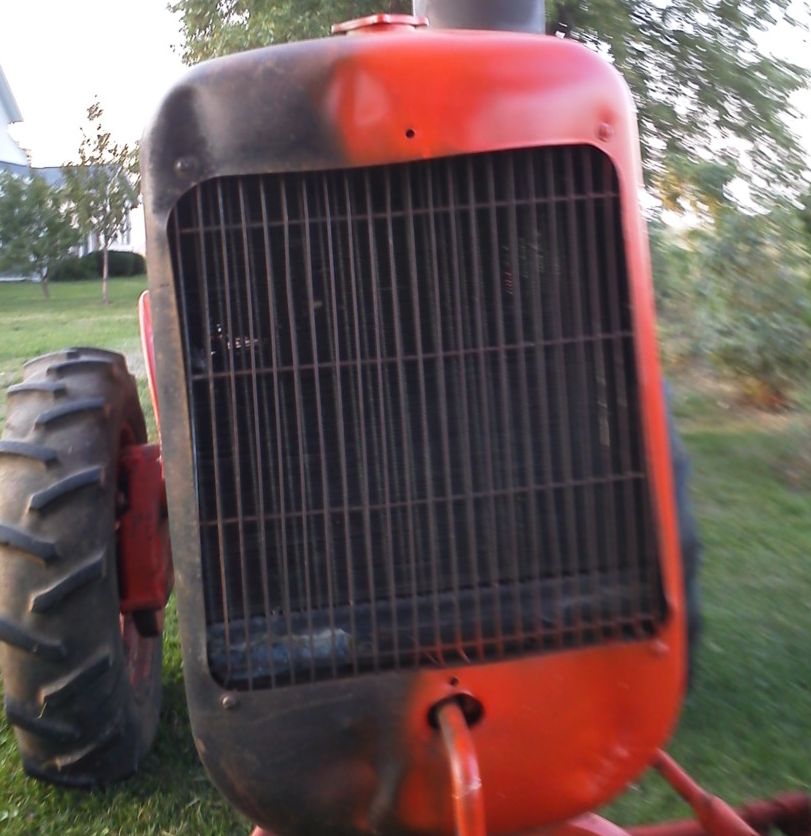
Joined: 12 Apr 2010
Location: LeClaire, Ia
Points: 5754
|
 Post Options Post Options
 Thanks(0) Thanks(0)
 Quote Quote  Reply Reply
 Posted: 25 Jan 2022 at 6:46pm Posted: 25 Jan 2022 at 6:46pm |
Codger... question for you:
What is the approximate height from the top of the intended water level, down to the surface of the discharge creek below? (in a dam, this is called 'head'... elevation distance from the impounded water above, to the discharged water below)
The sheepsfoot roller works on a very basic principle: compactable soils can support a given amount of weight-per-surface. My soil up here is probably not too different from yours, once I'm down several feet anyway... but a ballpark for the types of cohesive soils we have in this valley between the Appalachians and Rockies, north of the Ozarks) is about 3000lbs per square foot of support capacity... that's for undisturbed 'virgin' soil. You'll be rolling over disturbed soil.
Let's say your sheepsfoot had just one foot on it, and it weighed 3000lbs total. IF the soil was NOT compacted to 3000lbs/sqft, placing that foot on the soil, would exert 3000lbs on that square foot, and compact the soil until it reached that point.
It only compacts the soil under the foot, of course, but that's what it comes out to.
Next: Your roller's feet are probably a quarter of a square foot, and there's many more in contact with the soil... but notice they're in rows of four. IF that entire roller, and it's share of that frame, were 3000lbs, then all four of those feet would compact to the equivalent 3000ps/f, and support the entire roller WITHOUT assistance of the other feet...
But wait- that's not all...
IF the soil underneath those four feet was SOFTER than 3000, they'll sink in, right? That means the row IN FRONT OF, and BEHIND, will be supporting PART of the weight, for the short timeframe that THEY'RE in contact. This means that a substantial amount of compaction will occur under those pads, without the roller being excessively heavy.
The alternative, would be to use the whole roller, flat, and expect the soil to compact by brute force, but the surface area of the roller is so high, that you'd NEVER get to 3000lbs per square foot... there's just too much surface. You could add ballast (water) to the roller, but you'd eventually be so heavy that the tractor won't be able to pull it with any authority... the compacting soil would just create a 'wave' in front of it, and bog the tractor down.
Interesting thing is... the feet are down fairly deep... if you get into really soft material, they'll shove it to that depth, and eventually, they'll sink into the point where the DRUM SURFACE is now supporting the weight. This, in combination with the roller not being ballasted to some silly weight, will grant you reprieve when you get into a wet area.
The Besides being a compacting force, the sheepsfoot's pattern forces moisture out of a subgrade layer... and into the holes created by the roller feet. Typically, a sheepsfoot roller will have tapered feet, so that they don't tear away the hole edges when lifting out of the hole (it's like an upside down cone) This allows for some rapid evaporation, too.
As for design/construction of the dam, I won't comment on it until I see a cross section of what soil types were placed when it was built.
What I CAN suggest, is that you set up your trash pump on top of the dam, and get your suction pipe down at the bottom of the impoundment, and your discharge stretched out to the bottom of the discharge creek below. Don't use roll-up tubing, use round, relatively rigid stuff. Get the engine started, and dump in priming water. Once it's flowing well, shut off the pump motor... you won't need it... syphon effect will draw it from the high side, to the low side all on it's own... just leave the pump and it's plumbing in place.
|
|
Ten Amendments, Ten Commandments, and one Golden Rule solve most every problem. Citrus hand-cleaner with Pumice does the rest.
|
 |
Codger 
Orange Level


Joined: 23 Dec 2020
Location: Utopia
Points: 2041
|
 Post Options Post Options
 Thanks(0) Thanks(0)
 Quote Quote  Reply Reply
 Posted: 26 Jan 2022 at 5:19am Posted: 26 Jan 2022 at 5:19am |
Hi Dave and thanks for jumping in. I really cannot answer for anything additional than stated. I do know the roller I'll borrow is a WABCO built in Peoria, IL and weighs right at nine tons empty but can be ballasted much heavier. I'm only interested in addressing the south slope of this area as everywhere else seems to be sound. All the "push" or removed dirt was shoved up onto this one slope and just spread out with no further attention other than a tiller behind a utility tractor to break it up for seeding. The retaining wall and dock/platform were installed the following year by the homeowner and family following internet research and home center guidance. I think we see the viability, and vulnerability of that.
I do want to drain the pond and allow it to dry a while later in the summer to "firm" it up. I don't know what it looks like under the water and ice there now so really don't know what I have to work with, or if it all needs torn out and started over? I've seen some photos but they are mostly of the completed retaining wall with some backfill performed. Nothing as far as what the footings were poured against. I asked if any "rip rap" and was told no, just sand for a level base so kind of a guessing game right now.
|
 |
DaveKamp 
Orange Level Access


Joined: 12 Apr 2010
Location: LeClaire, Ia
Points: 5754
|
 Post Options Post Options
 Thanks(0) Thanks(0)
 Quote Quote  Reply Reply
 Posted: 27 Jan 2022 at 7:34am Posted: 27 Jan 2022 at 7:34am |
I'm not a soils engineer, but I've had enough classroom time with geology and hydrology to know when it's time to read books...
Earthen dams are THE SINGLE OLDEST engineered structures of humanity... and many are engineered better than others. I built a small impoundment on my property using spoils from a house addition, and while it hasn't failed yet, it doesn't have actual continuous retention, it merely prevents high flow from eroding the farm field below... so it's naturally absorptive in the bottom, and intentionally so.
Yours, however, is intended as a continuous impoundment, so it NEEDS to seal... and construction of a sealed impoundment requires an impermiable layer, both to hold the water, AND prevent it from saturating the physical structure and causing a failure. For a common farm pond, this is done with indigenous clay... push the topsoil back until you reach clay, and carve out and push enough to form the desired elevation of the dam, and as it's being pushed and built-up, compacted in practical lifts. Once done, the remainder is covered with earth that will sustain foliage (to prevent wind erosion) and lined with riprap (to prevent wave action from chipping at the edges).
The only way to tell what you've got, is by taking soil samples using a probe, and analyzing the samples's content and depth, and charting it out to see what's in there.
IF the PO had build pictures, perhaps you can tell how they did it, about how far down they went, etc... it may be that you don't need to do much, but if the face of the dam is soft enough for you to consider taking a sheepsfoot over it while drained, it will certainly soften up again once water is reintroduced.
The term you'll see, is liquifaction... cohesive soils, once saturated, loose their cohesion... and if you're seeing 'slipping down', it's a soil cohesion issue. If it's slipping atop the clay lining, then it's not necessarily a compaction problem, it's just an adhesion issue, in which case, a change in shape, or addition of a layer of geotextile, and rooting ground-cover will stabilize that surface.
Your state DNR probably has some good guides on their site for rural pond design, and if you check the local colleges, you will probably find someone in their staff that'd be interested in bringing out students to run samples and profile your structure as a research project...
|
|
Ten Amendments, Ten Commandments, and one Golden Rule solve most every problem. Citrus hand-cleaner with Pumice does the rest.
|
 |
DMiller 
Orange Level Access

Joined: 14 Sep 2009
Location: Hermann, Mo
Points: 31119
|
 Post Options Post Options
 Thanks(0) Thanks(0)
 Quote Quote  Reply Reply
 Posted: 27 Jan 2022 at 3:38pm Posted: 27 Jan 2022 at 3:38pm |
|
I re-read the earlier post, sorry to say you will not be able to get a compaction level on Top soil, it has too much organic material in it where will not develop any reasonable compressed value.
|
 |
Codger 
Orange Level


Joined: 23 Dec 2020
Location: Utopia
Points: 2041
|
 Post Options Post Options
 Thanks(0) Thanks(0)
 Quote Quote  Reply Reply
 Posted: 28 Jan 2022 at 10:37am Posted: 28 Jan 2022 at 10:37am |
I'll have to follow up with the owner to see if any engineering or "overseeing" was done as I don't know. What I seen at the top of the hill was a slender, or tapered clay type material. I didn't look any to see if there was any grass present such as being spread over former lawn. This is not a massive slide, but only the area that is concentrated above the retaining wall and probably about 30 feet in width. I wish I knew the depth but do not. I know the whole area the pond material was pushed/spread over is about 150 feet with most of it intact. The retaining wall, and dock was installed later so that excavation is later and this seems to be the area of concern.
I will follow the advice as I know a couple of teachers quite well at Illinois Central College and they have geology classes. Might as mentioned be a nice learning experience for many.
Thanks for the tip(s).
|
 |









 Topic Options
Topic Options

 Post Options
Post Options Thanks(0)
Thanks(0)




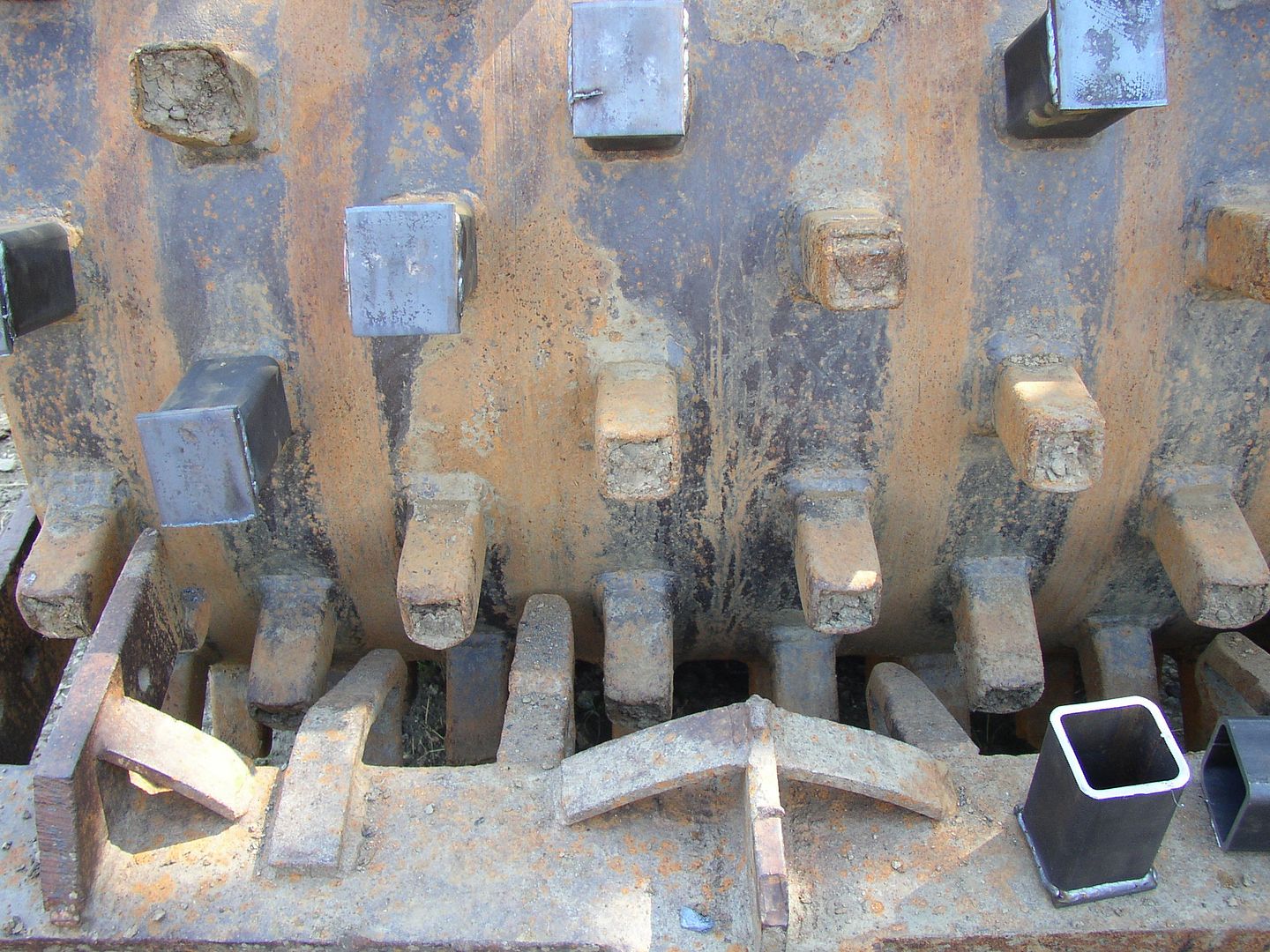
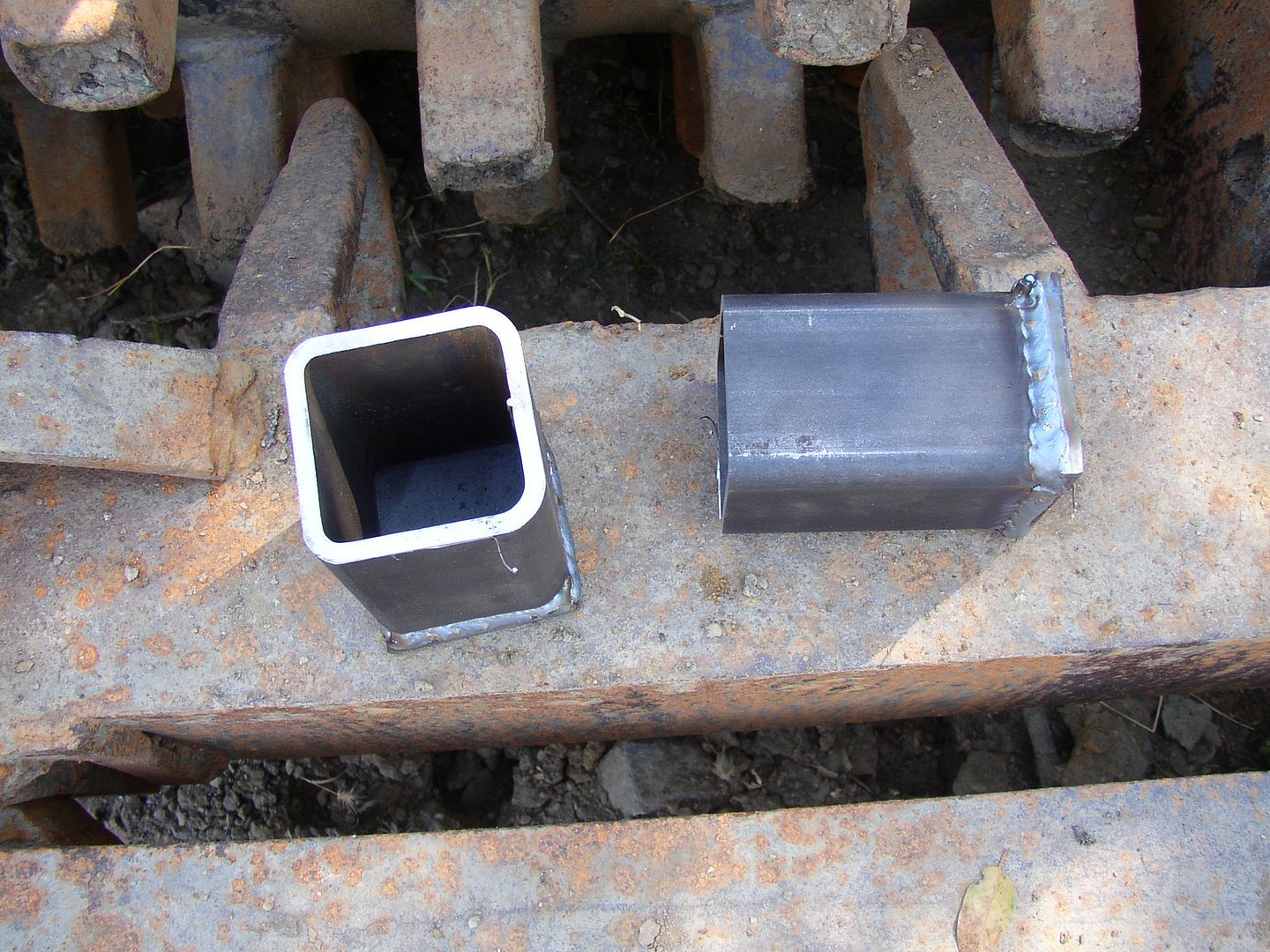
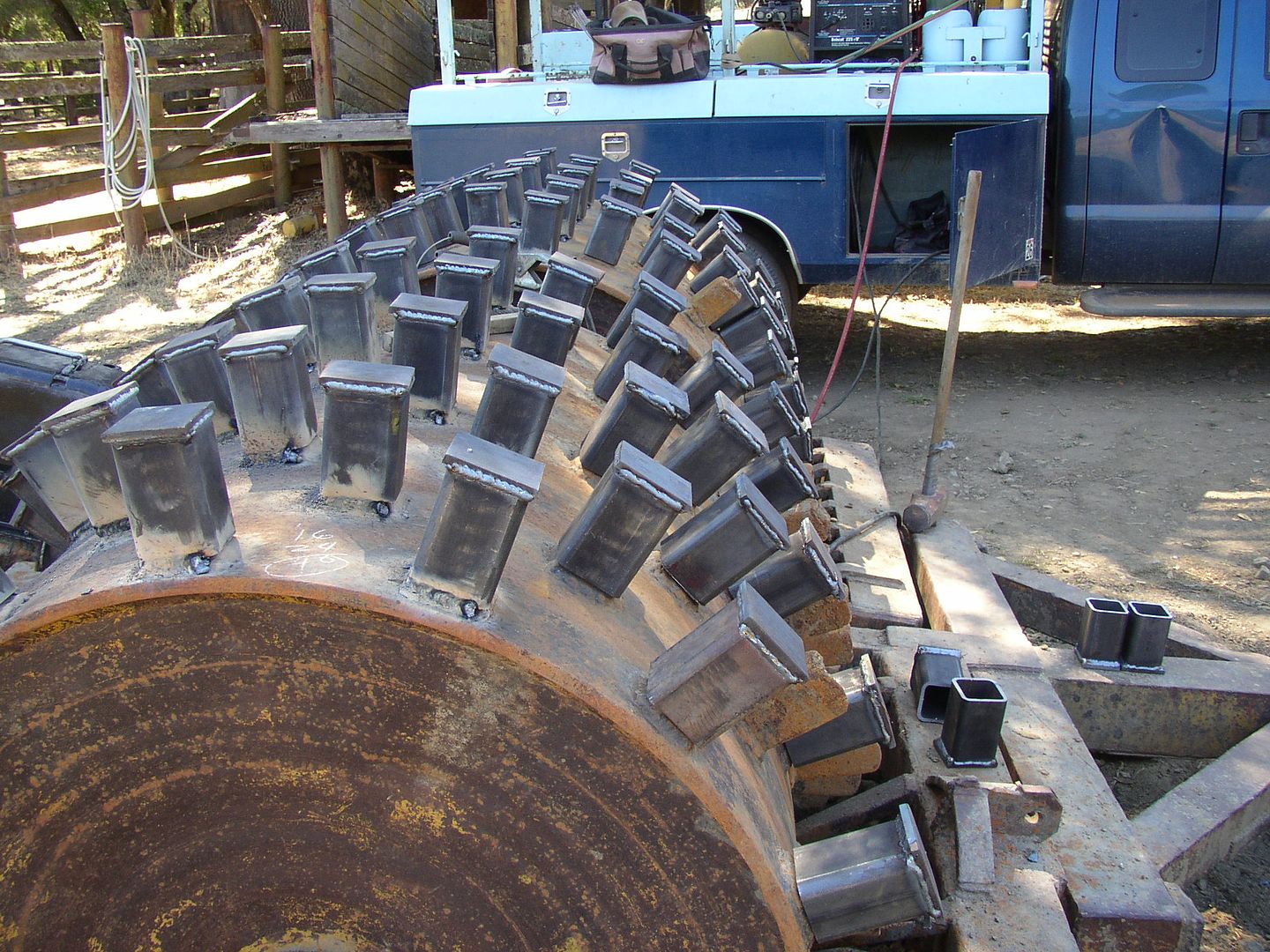
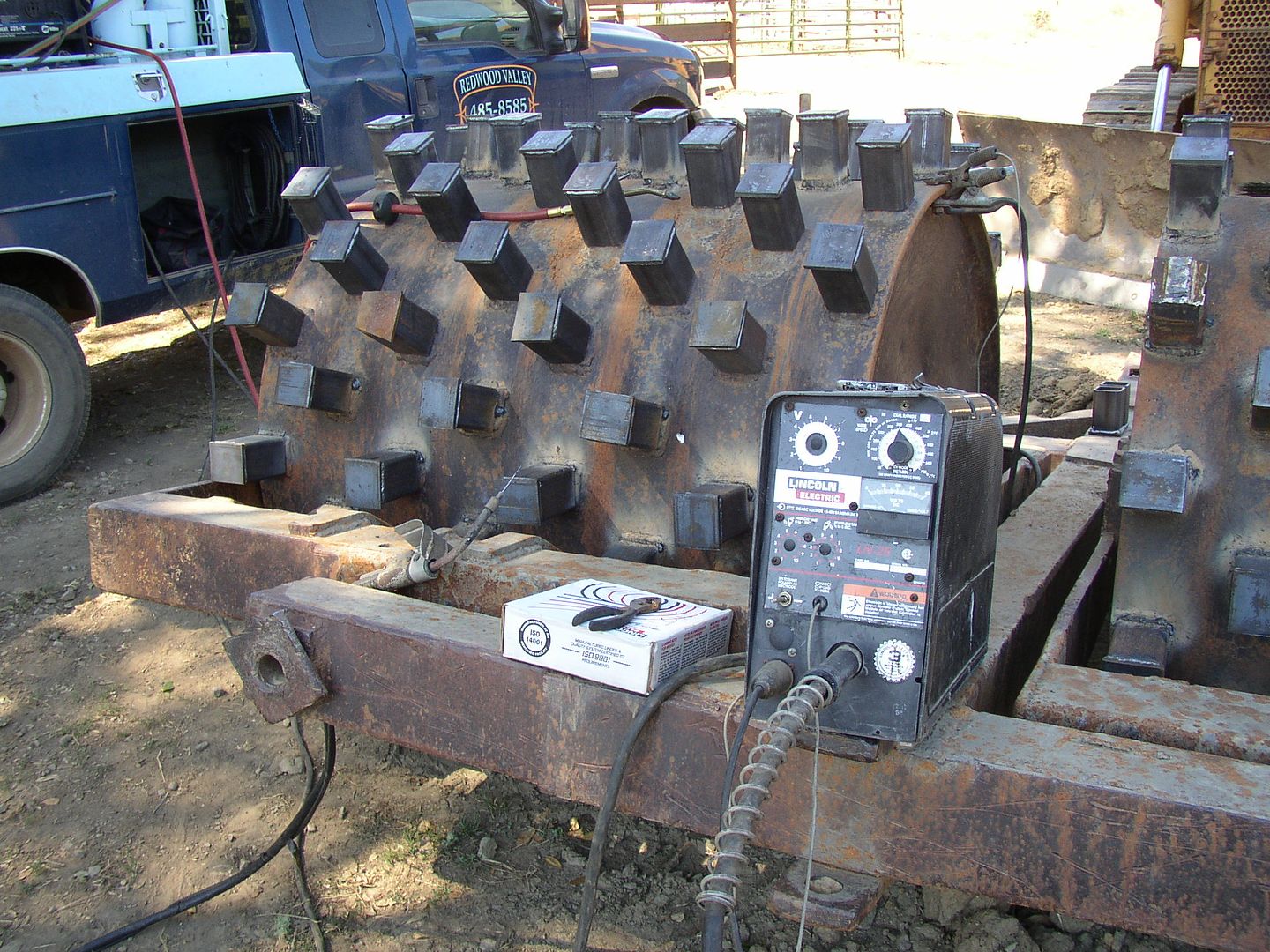
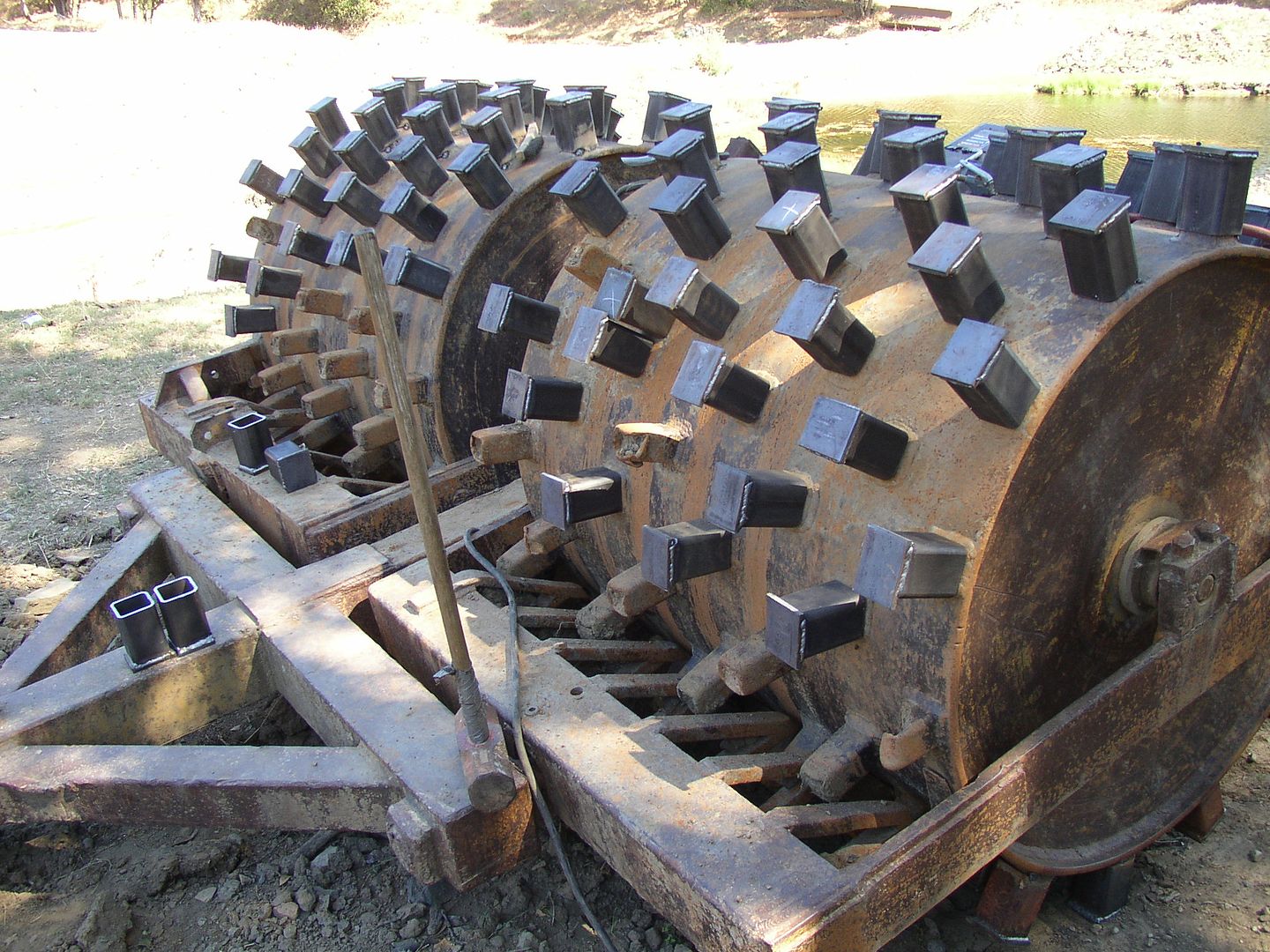
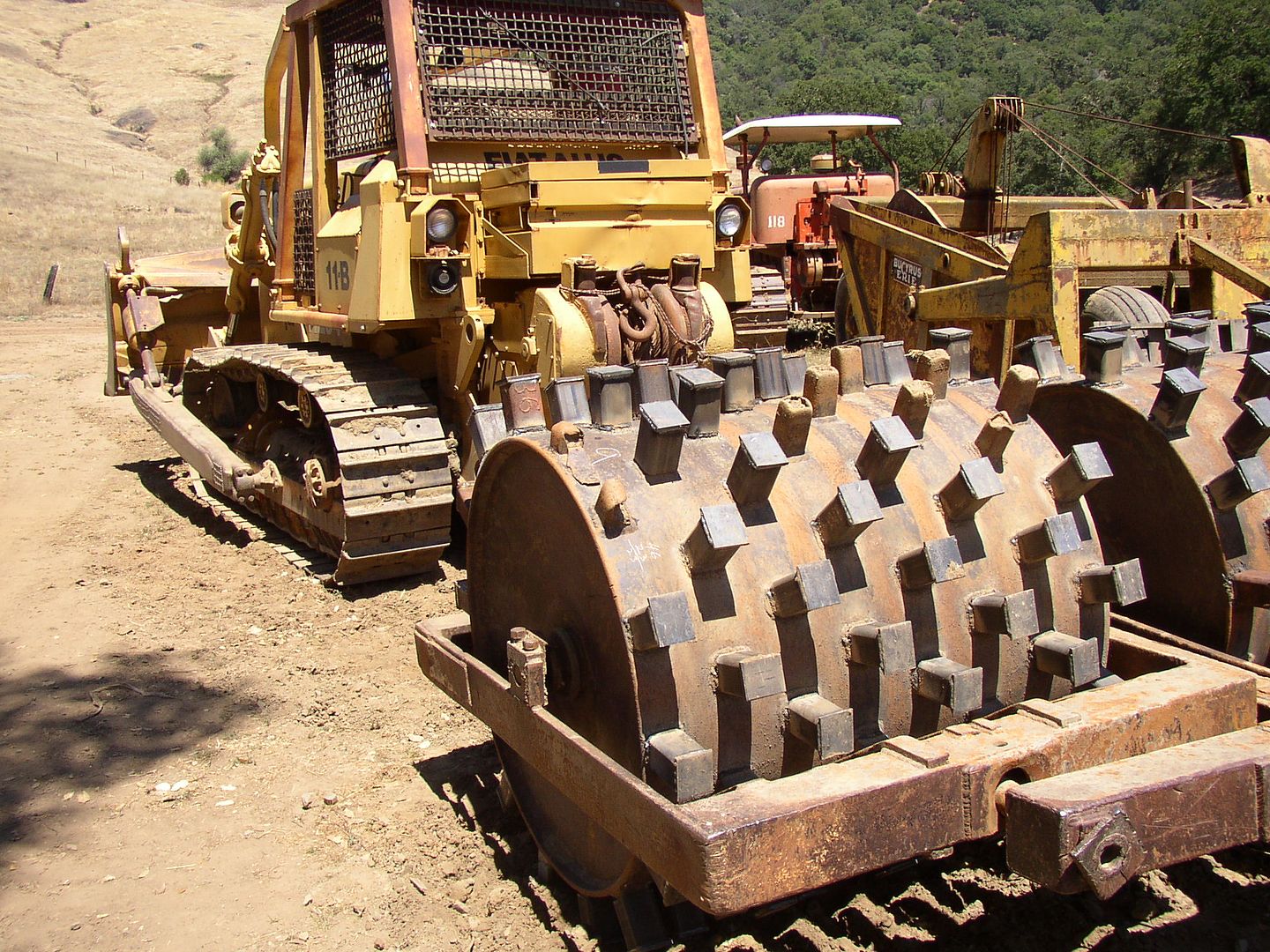
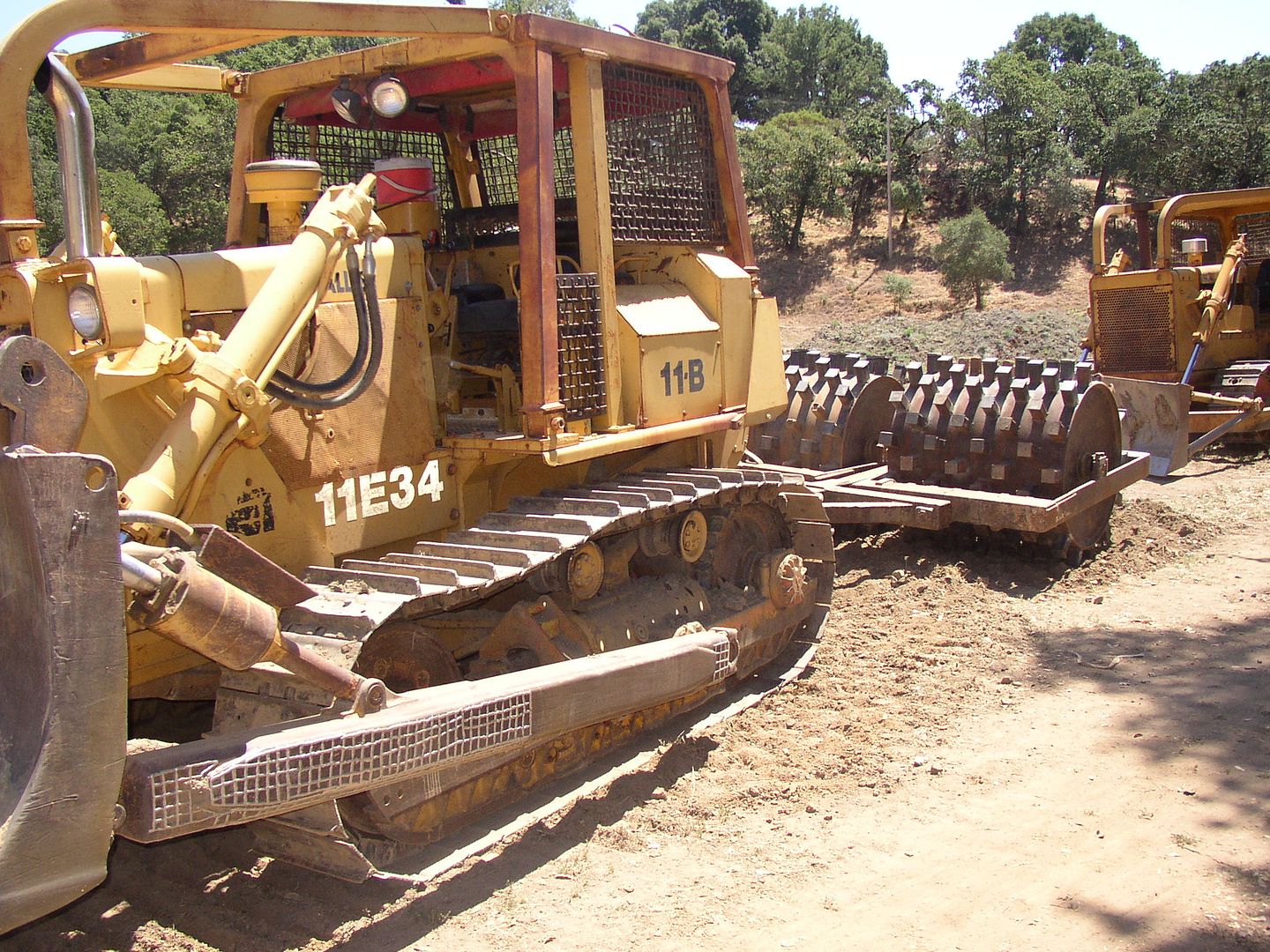
 Dusty MI wrote:
Dusty MI wrote:
